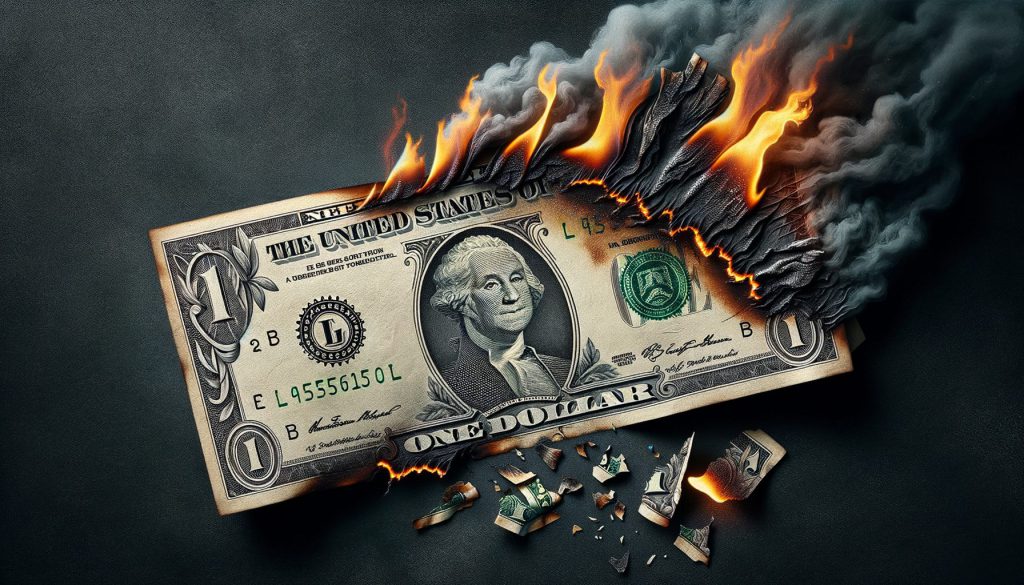[#title_feedzy_rewrite]
![[#title_feedzy_rewrite]](https://postcryptocoins.com/wp-content/uploads/2025/06/7fe14fc2-1024x585-3wNH56.jpg)
Right now, Trump’s capital tax measures are being rolled out through Congress, and the implications for global markets…
Right now, Trump’s capital tax measures are being rolled out through Congress, and the implications for global markets are quite frankly alarming. This new policy, which is buried deep in section 899 of the Republican “Big Beautiful Bill,” would allow the White House to impose taxes on foreign companies from countries it considers discriminatory. At the time of writing, the potential for a US dollar collapse scenario and massive capital outflows from American assets is becoming a real concern among financial experts.
Also Read: Trump Calls Xi ‘Tough to Deal With’ Amid US-China Trade Strain
How Trump’s Capital Tax May Trigger Crypto Chaos And Dollar Decline
Wall Street Experts Sound the Alarm on the Capital Tax
George Saravelos, who serves as global head of FX research at Deutsche Bank, has been quite vocal about this issue. He warns that this approach challenges the open nature of US capital markets by explicitly using taxation on foreign holdings of US assets as leverage to further US economic goals.
Saravelos also warned about the weaponization of US capital markets, stating:
“This weaponization of US capital markets risks creating the scope for the US administration to transform a trade war into a capital war if it so wishes.”
And it’s not just Deutsche Bank that’s worried. Elias Haddad, a strategist at Brown Brothers Harriman, points out that this measure would deter foreign investment in US assets at a time when America is becoming increasingly dependent on foreign capital to finance its growing debt pile. His assessment is blunt – it’s simply not good for the dollar.

Global De-Dollarization Accelerates Due to New Policies
Because of dollar weaponization already being a concern, Trump’s capital tax is quite disconcerting. Russian currency reserves were recently frozen when Putin invaded Ukraine. Economist Zongyuan Zoe Liu at the Council on Foreign Relations closely follows this development, and she is very clear about the issue.
Liu was clear about the fact that:
“The more the US uses it, the more other countries are going to diversify due to geopolitical reasons.”
In 2022, Congress gave the Biden administration the authority to take Russian dollar assets to support Ukraine. As a result of this REPO provision, people started talking again about how using the dollar will eventually add to the costs for the US, and now similar questions are being raised over these new capital tax measures.
The Crypto Market Impact from Rising Capital Outflows
The crypto market impact from these new policies is becoming substantial as investors seek alternatives to traditional dollar-denominated assets. Capital outflows from US markets may accelerate as foreign entities look to reduce their exposure to these new taxation risks. Digital assets often serve as hedges against currency instability and also against government overreach.
Market volatility has already been witnessed as Trump’s broader economic agenda unfolds. His tariff threats managed to spook Treasury markets earlier this year, pushing 10-year yields above 4.8% in April. The turmoil didn’t stay contained – it spread globally and hit Japanese government bonds particularly hard.
Global de-dollarization trends are being accelerated by these policies, and crypto assets are being positioned as potential beneficiaries right now. When traditional assets become riskier due to potential taxation, investors often turn to digital currencies as alternatives.
Also Read: Trump Eyes Global Markets With 15% Tariffs for 150 Days
Congressional Support Despite Dollar Risks
Republican allies in Congress are moving ahead with the controversial capital tax legislation despite the potential consequences for dollar hegemony. The 1,000-page document represents a major shift in how America approaches foreign investment, and also how it uses its financial system as a weapon.
This timing coincides with Trump’s broader assault on Federal Reserve independence. He’s been threatening to fire Chair Jerome Powell and limit the Fed’s ability to make monetary policy decisions independently. These combined pressures are creating an environment where global de-dollarization trends may accelerate significantly.
At the moment of writing, other nations are following the news about Trump’s capital taxes. It is easy to see that several countries are already diversifying their sources of currency to depend less on the dollar. When weaponization policies, uncertain regulations, and geopolitical problems come together, they may cause a collapse of the US dollar.
People globally involved in financial markets are deeply concerned about what the future means for America’s financial dominance. With foreign investors looking to lessen their holdings in US investments, capital outflows will rise, while the rise in popularity of cryptocurrencies will bring greater effects on the market.

